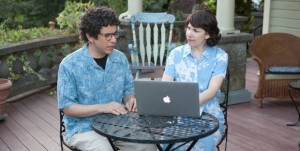Food is universal and food is relevant.
Instagram has become synonymous with food photos, and food blogs are one of the most popular categories of blogs on the web. Lucy Longs (in a reply to Kiersten Mcgaughey’s article) responds that “food, perhaps because of the universality of eating, is a particularly popular topic of blogs”. However, despite food and eating’s universality, food photos are a common source of soft ridicule among a social-media centred society. Whipping out your smartphone to take a picture of your meal is “so gen-y” and should probably be featured on Portlandia as a skit with Fred and Carrie.
Nevertheless, coming back to Long’s point on the universality of food, food is relevant- and for some, interesting. The types of food blogs vary from vegan ventures, gluten-free goodness to traditional but exciting ethnic cuisine.
Although food online is a new age concept, perhaps it is only because the internet is a new age form of media. Traditionally, there was no avenue to share food photos, or access endless collections of recipes with the click of a mouse. Food is universal, interesting to most, and now there exists an avenue to share it. The progression to an internet full of food no longer seems to far fetched.
Food also plays a large role in our lives today: we have varying dietary habits, lots of variety, and for the most part, expendable income. How much would an online food journal inform us of our projected narratives? Ethnicity, social class, moral concerns and principles, interests?
A personal spin:
I am an athlete and a vegan. My values lie in the treatment of animals and the health of our bodies: from my instagram page this is very clear (kenblen), and well as my own personal blog Kenblenblog.com. You’re welcome to check me out and learn about my online narrative :).
Works cited
Longs, Lucy. Reply to “Food in Binary: Identity and Interaction in Two German Food Blogs”. Bowling Green State University. <http://ist-socrates.berkeley.edu/~caforum/preview/volume9/pdf/mcgaughey.pdf>. 2010.
Mcgaughey, Kerstin. Food in Binary: Identity and Interaction in Two German Food Blogs. Boston University.<http://ist-socrates.berkeley.edu/~caforum/preview/volume9/pdf/mcgaughey.pdf>. 2010.

